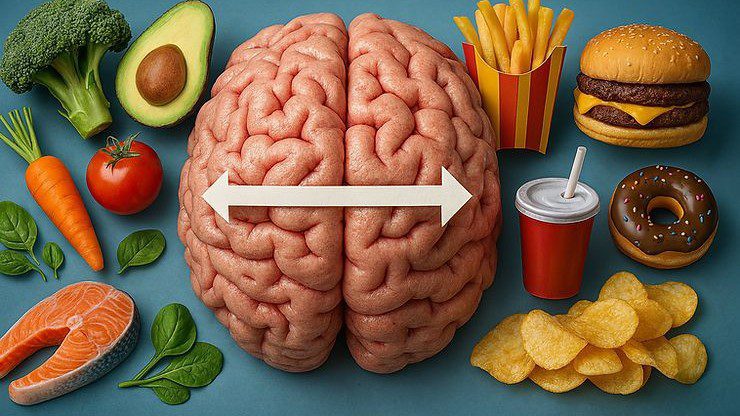In our busy lives today, it’s nearly impossible to avoid stress. While it’s completely normal to experience some stress from time to time, dealing with it constantly can take a serious toll on both our mental and physical health. What often flies under the radar is the significant impact that our nutrition has on how we handle stress. The foods we choose to eat do more than just provide energy; they can profoundly affect our brain chemistry, influence our mood, and shape our ability to bounce back from challenges. Understanding this connection can be a game-changer in managing stress effectively.
1. Stress and Its Impact on the Body
When we’re stressed, the body releases hormones like cortisol and adrenaline. While helpful in short bursts, high cortisol levels over time can:
-
Disrupt sleep patterns
-
Lower immunity
-
Trigger anxiety and depression
-
Lead to unhealthy eating habits
This creates a vicious cycle — stress affects our eating choices, and poor nutrition worsens stress and mental health.
2. Nutrition and Mental Health: The Missing Link
Research shows that our brains need a steady supply of nutrients to function optimally. Deficiencies or poor diet choices can increase the risk of mental health struggles. Key nutrients include:
-
Omega-3 fatty acids (found in fish, chia, flaxseed) → support brain function and reduce inflammation.
-
B vitamins (whole grains, eggs, leafy greens) → regulate mood and reduce fatigue.
-
Magnesium (nuts, seeds, bananas) → calms the nervous system.
-
Antioxidants (berries, colorful vegetables) → fight oxidative stress linked to anxiety and depression.
3. Stress Eating vs. Mindful Nutrition
Many people turn to comfort foods (sugary or high-fat snacks) during stressful times. While these provide short-term relief, they can worsen mood swings and energy crashes.
Mindful nutrition helps break this cycle:
-
Eat balanced meals with protein, fiber, and healthy fats.
-
Stay hydrated — even mild dehydration can affect concentration and mood.
-
Limit caffeine and alcohol, which can heighten anxiety.
4. Building a Stress-Resilient Diet
To support both mental health and nutrition:
- Start your day with a balanced breakfast (oats + fruit + nuts).
- Include probiotic-rich foods (yoghurt, kefir) to support gut health — the gut-brain connection is real.
- Snack smart with fruits, seeds, or dark chocolate instead of processed foods.
- Plan meals to avoid last-minute unhealthy choices.
5. Lifestyle Matters Too
While nutrition is key, managing stress also requires:
-
Regular exercise
-
Adequate sleep
-
Relaxation techniques (deep breathing, meditation, prayer).
-
Social connection and talking about what you’re going through.
Conclusion
Stress, mental health, and nutrition are deeply interconnected. Eating well doesn’t just fuel the body — it empowers the mind to cope with life’s challenges more effectively. By choosing foods that support brain health, practising mindful eating, and adopting healthy lifestyle habits, you can build resilience against stress and improve your overall well-being.
Shop At Yanah
At Yanah Pharmacy, we care about your mental and physical wellness. Explore our range of nutritional supplements, vitamins, and wellness products to support a healthier, stress-free lifestyle.

